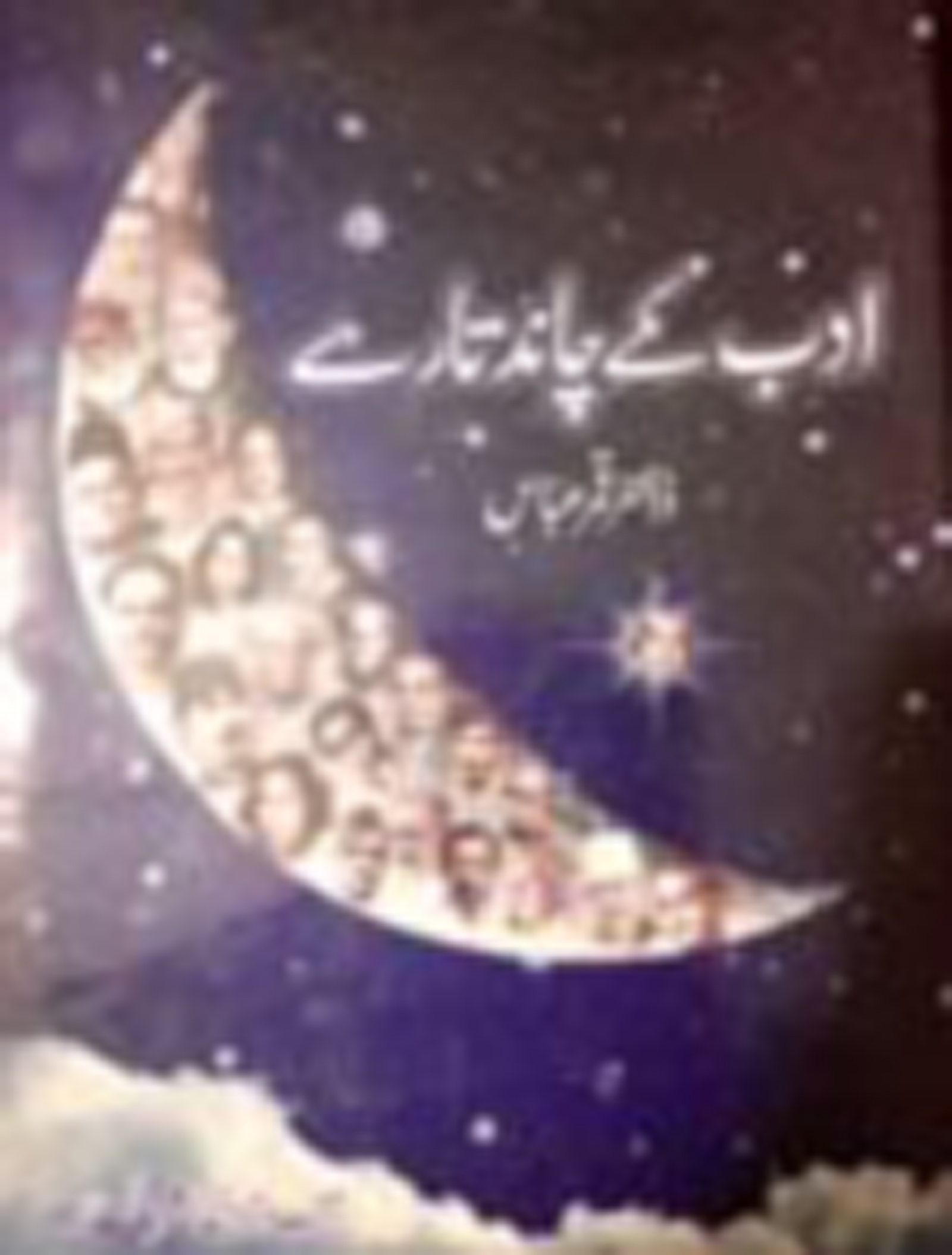By Shafique Ahmed Shafique
Name of book : Adab Kay Chaand Taray (The Moon
& Stars of literature)
Name of author : Dr Qamar Abbas
Name of Compiler : Farhan Raza
Page : 172
Price : Rs 350
The book under review is a collection of Dr. Qamar Abbas’s write-ups written on various poets, novelists, short-story writers and journalists. He is not only a senior and seasoned journalist but is also a literary essayist has been writing articles on prominent and history-maker personages. His essays which were published in the daily ”JANG” were scattered.
Farhan Raza a promising young writer as well as friend of Dr. Qamar who was a regular reader of Dr. Qamar Abbas impressed by his essays very much and planned in his mind to give them a shape of book, therefore, he tried several times to convince his friend Dr. Qamar to allow him to publish a book consists of some of his essays. At last Farhan Raza succeeded to agree him with his noble scheme.
Thus, Farhan Raza began to collect write-ups of Dr. Qamar Abbas. After busiest days and nights he could able to get and select 28 write-ups of Dr. Qamar and published in a book shape under the title of “Adab Kay Chaand Taray” (The Moon & Stars of literature) in this year i.e. 2017.
There are also more six essays in this book. Dr. Qamer Abbas and the compiler of the book Farhan Raza have written preface and forewords separately. The renowned poet and journalist Mahmood Shaam, Dr. Muhammed Raza Kazmi, Khaja Razi Haider and Aqeel Abbas Jaferi have also expressed their opinions about the book and its author as well as the compiler in their articles.
The honest study of the book compels the critics, authors and readers to admit that Dr. Qamar is a writer of multiple abilities of criticism. Though, this collection of essays is not a book of criticism which purely discusses only literary theories and literary issues and it is an example of practical criticism.
But the critical approaches and way of evaluation of avant-gardes of Urdu writers are to some extent very close to theoretical analysis. The articles on Aarzoo Lakhnavi, Aagha Hashr, Akber Ilahabadi, Iltaf Hussain Haali, Ibne Safi, Josh Malihabadi (two essays), Cheragh Hasan Hasrat, Raees Amrohavi, Sa’at Hasan Manto, Shaukat Thanvi, Ustad Qamar Jalalvi, Abdullah Hussain, Majnoo Gorakhpuri, Meer Anees, Mustafa Zaidi and Muhammed Hussain Azaad have been written with painstaking efforts and present a lot of information about these men of letters.
During writing these write-ups the author has maintained balanced attitude and proved sincerity towards his subject matters relating to the personalities. Akhter Shirani, Ibne Insha, Bahadur Shah Zafer, Fani Badayooni and Nasir Kazmi are also among those essays which very eloquently opine that the literary background of his family is not only wealthy but he has very scholarly and vividly tried to convince that a writer who does not have wider sympathies is failing in his task.
Being an honest penman, he thinks literature should contribute to the principles of equity and common weal. Moreover, the writers will portray life with a view to promoting enlightenment to the society to prepare mentally to absorb the right attitudes towards fellow human. Farhan Raza has done a precious job by compiling this book. The main author’s efforts are also laudable. I hope that the book “Adab Kay Chaand Taray” will be heralded warmly by the lovers of literature.
———————————————————————————————-
Hashr, Akber Ilahabadi, Altaf Hussain Haali
What is criticism? Criticism is an interpretation, analysis of a literary creation which remains under the study of a critic. It is a serious effort to look at a text of novel, poetry, short story and any kind of literary writing and writer. It is also an argument-like review about what a critic think and means about a literary piece and literary personage.
Critic is another name of reviewer who thinks about the themes, way of expression, style and vocabulary. It evaluates as well as paves the way for philosophical arguments. Criticism also tries to understand how a poetry or short story compels a reader or critic to say eureka. In the 20th century, literary criticism has developed into a system. There are various branches of theories. All these disciplines and theories have different ways of approaching text under study.


